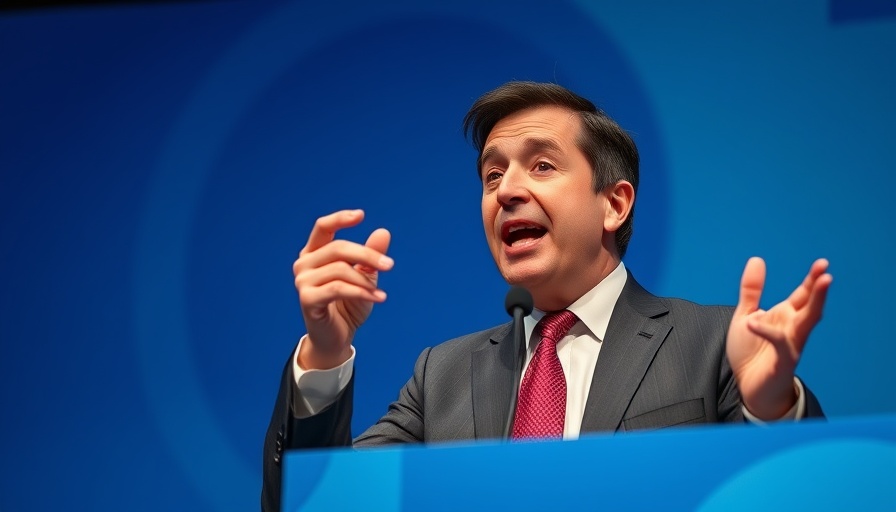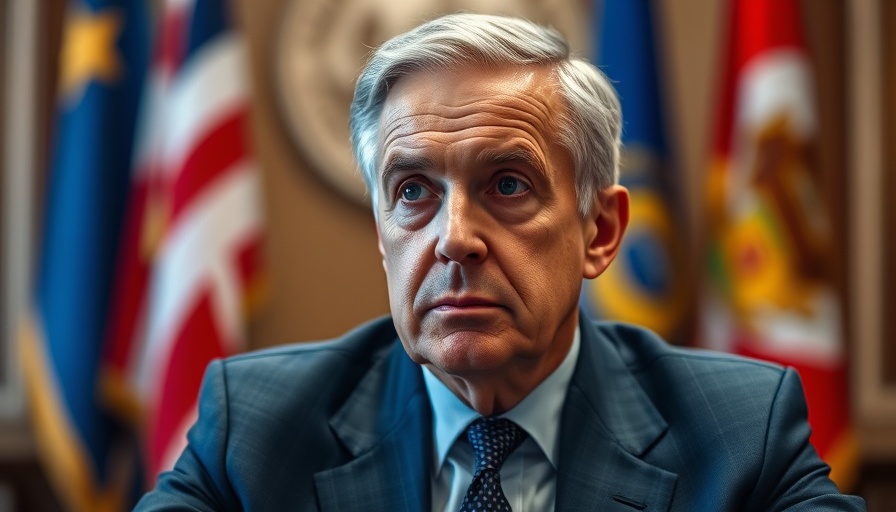
The Recent U.S. Withdrawal from UNESCO: A Historical Perspective
The United States' decision to exit UNESCO has renewed discussions about American foreign policy and its implications on global educational, scientific, and cultural initiatives. This marks a significant moment, as it follows only two years after the U.S. rejoined the organization under President Biden. To grasp the weight of this move, it’s essential to reflect on how historical context has shaped these diplomatic relations.
In 'US leaves UNESCO - again,' the discussion dives into American foreign policy shifts, exploring key insights that sparked deeper analysis on our end.
The U.S. originally withdrew from UNESCO in 1984 under President Ronald Reagan, citing concerns over supposed anti-Western bias within the organization. This notion resurfaced in 2017 when President Trump pulled the nation out again, claiming that UNESCO promoted anti-Israel sentiments. The retrospective narrative illustrates a pattern: the agency's alignment with the cultural and political shifts that U.S. administrations choose to emphasize has often led to their exit.
Understanding the Forces Behind the Withdrawal
The withdrawal indicates deep-rooted ideological divides impacting American engagement with international institutions. Recently, President Biden's administration re-evaluated its stance based on a desire to counter anti-Israel bias. However, the complaints about "woke" cultural initiatives suggest an evolving narrative about what types of global policies are deemed acceptable by the American populace. This shift reflects not just partisan differences but also the larger ideological battleground over cultural values in America.
Such actions can prompt professionals in various fields, especially those engaged in international relations, cultural studies, and public policy, to consider how these moves by U.S. leadership ultimately affect funding, support, and collaboration on global initiatives concerning issues like education, science, and culture. The fallout could change how countries view the U.S. as a reliable partner committed to international cooperation.
Reactions from the Global Community
The reaction from UNESCO officials and member countries highlights a growing sense of unease surrounding the persistent U.S. disengagement from multilateral institutions. As a vital player in global culture and education, the U.S. has previously shaped many significant UNESCO initiatives. Withdrawal signals a potential vacuum in leadership and collaboration on pressing global challenges, from climate change education to heritage preservation.
International leaders and scholars are now tasked with assessing the ripple effects of this exit. Discussions about future engagements, from African nations striving for educational equity to nations managing cultural heritage preservation, find new urgency given the withdrawal signals a retreat from shared global commitments.
The Domestic Implications of the UNESCO Exit
For American citizens and professionals alike, the implications extend beyond foreign policy. The disconnect between the government and the institution can lead to funding setbacks for various educational and cultural fields within the U.S. As UNESCO supports programs that include global awareness and cultural education, this phase signals a potential decline in American students' international engagement.
Moreover, the exit can fuel divisions domestically, igniting further debates about who American institutions represent and for whom they are designed. The dialogue surrounding this sensitivity can enhance engagement among citizens interested in fostering a more nuanced understanding of the cultural and educational resources available.
Future Predictions: What Lies Ahead?
As we anticipate the changes that UNESCO will face with the U.S. withdrawal, important questions arise regarding global alliances and educational initiatives. The withdrawal from UNESCO could signal shifting alliances in an increasingly multipolar world. Other countries may need to step up to fill the leadership void that the U.S. exit leaves, forging new partnerships that prioritize global collaboration over nationalism.
This turning point could catalyze other nations to innovate and strengthen their educational ties, particularly in regions like Africa, where investment in education and scientific research is crucial. Countries could capitalize on this opportunity to assert their leadership on global stages, foster international cooperation, and challenge longstanding trends.
Bridging Cultural Divides Through Engagement
As we reflect on the implications of the U.S. withdrawal from UNESCO, professionals should consider how cultural engagement can forge pathways toward understanding and cooperation between nations. By prioritizing cultural diplomacy and educational exchange, opportunities for shared initiatives can arise, including tackling fundamental issues such as climate change and inequality.
Encouraging partnerships and fostering dialogues will be critical for navigating the complexities of cultural policies in a divided political environment. Research suggests that nations can benefit from establishing cultural programs focused on mutual understanding and respect, and such actions might counterbalance the disintegrating role of international bodies.
In conclusion, as the U.S. makes its second exit from UNESCO, it is neither mere policy reversal nor a simple foreign affair; it reverberates through a complex web of global relations, impacting both domestic and international spheres. For professionals in politics, education, and culture, understanding these dynamics will be pivotal for informed engagement and future policymaking.
 Add Row
Add Row  Add
Add 




Write A Comment